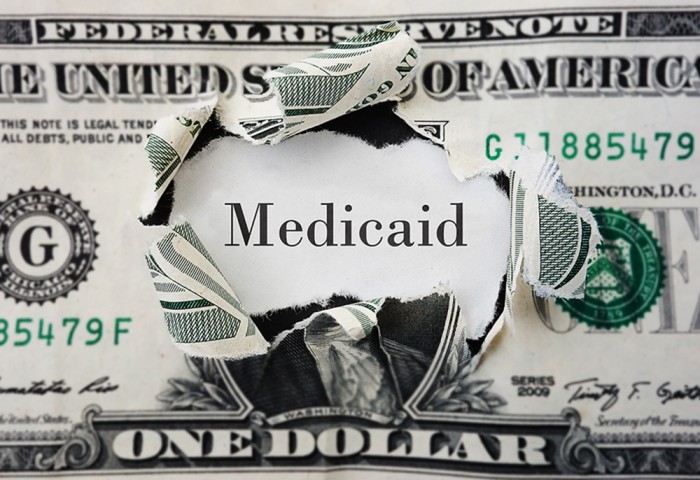hcbs
Request to Senator Toomey to Support the Build Back Better Act
RCPA joined with other disability service associations representing disability service providers and individuals with intellectual disabilities and autism (ID/A) in Pennsylvania urging Senator Toomey to support the investment included in the Build Back Better Act. The BBB Act, as passed by the House of Representatives, will strengthen the direct support professional workforce and sustain and expand access to Medicaid Home and Community-Based Services (HCBS).
The longstanding direct support professional (DSP) worker shortage has grown during the pandemic and decreased access to HCBS for people with disabilities in Pennsylvania as well as negatively impacted the quality of supports those individuals receive. Supporting this historic investment is crucial to strengthening and growing the DSP workforce so that all people with disabilities may lead safe and fulfilled lives. It is critical for Senator Toomey to vote in favor of this legislation to strengthen and expand the Medicaid HCBS program.
Additionally, we ask that members join us in this advocacy. This letter can be utilized as a template for your efforts. Please join us in this advocacy effort.
ARPA: One-Time Supplemental Payment to Address Staff Expenses
American Rescue Plan Act: One-Time Supplemental Payment to Address Recruitment, Retention, and COVID-19 Related Staff Expenses
ODP Announcement 21-086 is to provide guidance about the process to request one-time payments to cover COVID-19 related expenses for high staff vacancy. The American Rescue Plan Act of 2021 (ARPA) provides a temporary 10% increase to the federal medical assistance percentage (FMAP) for certain Medicaid expenditures for home and community-based services (HCBS). The funding is to be used to enhance, expand, or strengthen HCBS beyond what is available under the Medicaid program as of April 1, 2021, and through March 31, 2024.
As part of the Office of Developmental Programs’ (ODP) ARPA spending plan to strengthen HCBS, providers can receive a one-time supplemental payment to address recruitment, retention, and COVID-19 related staffing expenses for direct support professionals or supports coordinators to include funding for hazard pay, costs of recruitment efforts, sign-on bonuses, retention bonuses, and other incentive payments. Providers will be required to complete and submit the attached Provider Attestation Form for One-Time Supplemental Payment and submit it to ODP for consideration.
Providers will be subject to recoupment of funds if it is identified in a state or federal audit or any other authorized third-party review that the provider has inappropriately billed for services or received duplicative payments for services provided or if expenses were reimbursed by duplicative funding streams. No portion of the supplemental payment can be utilized to increase executive compensation.
Providers will be required to continue providing services from December 1, 2021, through June 30, 2022, obtaining written consent from ODP for any discontinuation of a service line or closure of a service setting. Additionally, providers will comply with all reporting requirements related to the use of the supplemental payment.
Requests submitted by December 17, 2021, will be processed for payment prior to the end of December. Requests for supplemental payments may be submitted through January 31, 2022.
ANCOR Capitol Correspondence — House Passes the Build Back Better Plan
Pa. Releases Plan for $1.2B in Stimulus Cash for Services for Medicaid Recipients
Excerpt from: Pennsylvania Capital-Star, Nov. 23, 2021
The Democratic Wolf administration says it wants to spend $1.2 billion in American Rescue Act funds to shore up home and community-based services offered through the state’s Medicaid program, all with an eye toward allowing more of the commonwealth’s residents to access services closer to home. On Monday, the administration dropped the formal details of a plan to direct the federal relief money toward seniors and adults with intellectual and physical disabilities; adults dealing with such behavioral health needs as substance abuse disorder or mental illness; and children with chronic and complex medical needs, the administration said in a statement.
In its statement, the administration said the money also would be used to pay for:
- Increasing access to home and community-based services;
- Providing necessary supplies to safely facilitate services;
- Additional trainings and learning opportunities through workforce support;
- Supporting families caring for their loved one;
- Improving functional capabilities of people with disabilities;
- Enhancing transitional supports; and
- Home and community-based services capacity building.
RCPA continues its discussions and advocacy with the Department of Human Services on spending priorities for human services, especially initiatives targeting rate structures and the workforce crisis.
Heightened Scrutiny Onsite Tools for Non-Residential Service Locations Finalized
ODP Announcement 21-081 informs providers that the Heightened Scrutiny Onsite Tools for Non-Residential Service Locations has been finalized and posted for stakeholders to view. The Office of Developmental Programs (ODP) is also using this communication to address some of the comments and concerns that were received through public comment.
While the COVID-19 pandemic resulted in significant delays in performing the onsite visits, ODP will now be continuing with the Heightened Scrutiny process for Community Participation Support (CPS) and Day Habilitation service locations to meet the CMS requirement that all waiver providers must be in full compliance with the Home and Community-Based Services (HCBS) Settings Rule no later than March 17, 2023.
Request for Number of IDD Providers With 100+ Employees
As ANCOR is analyzing the impact of the Centers for Medicare and Medicaid Services (CMS) mandate released this morning, it is clear that ICF employees are included; however, waiver services are not unless the provider employs 100 or more employees. We are trying to get a handle on how many providers this will impact. Please let Carol Ferenz know ASAP if this will impact your organization.
From the CMS Frequently Asked Questions document:
Q. Does this requirement apply to Medicaid home care services, such as Home and Community-Based Services (HCBS), since these providers receive Medicaid funding but are not regulated as certified facilities?
A. No, this regulation only applies to those Medicare and Medicaid-certified provider and supplier types that are subject to CMS health and safety regulations. CMS’s health and safety regulations do not cover providers of Home and Community-Based Services.
Study Utilizes NCI-AD Data to Highlight Connections Between Unmet Needs and Poor Health
HCBS Day of Action: ANCOR Update
Message from ANCOR:
The White House just released its framework for the Build Back Better Agenda this morning. The framework includes $150 billion for Medicaid Home and Community-Based Services. There is still no legislative text available for the budget reconciliation bill, which is how Congress will move forward this framework. Negotiations are still ongoing. We will continue to update you as we know more.
We are encouraged that reports indicate that HCBS funding will be included in the final bill. But we want to make sure we don’t let up on our advocacy in this final stretch!
Please join us TODAY as we participate in a Day of Action along with our coalition partners from disability, aging, and labor groups.
- Please take action with our latest action alert and ask your members of Congress to support increased funding for HCBS. And please continue to share this widely with your networks!
- Take a moment to engage on social media. You can tweet your members of Congress by using the directory linked here. Sample social media posts are below.
Here are some sample tweets you can use:
- #Medicaid #HCBS is key to including ppl w/ #disabilities in the community, but the direct support workforce is in crisis. Read more from ANCOR about this devastating crisis and why #CareCantWait:bit.ly/3ASgUH9
- Funding for home & community-based services is essential to the health and well-being of people w/ disabilities, but the #HCBS direct care workforce has been underfunded for too long. Congress must invest now because #CareCantwait bit.ly/3ASgUH9
- Without funding for #Medicaid #HCBS, it’s only a matter of time before people w/ disabilities completely lose access to the options and resources needed to remain in their homes and in the community. Fund HCBS because #CareCantWait
- 81% of American voters support increased funding for home & community-based services. Support funding for #Medicaid #HCBS now. #CareCantWait
- “We have to look at how we are going to provide services for our most vulnerable adults and children in the coming decades, and we need to create a long-term, sustainable solution for that.” #HCBSCantWait bit.ly/3jDoS0b
- Please support including HCBS funding in the Build Back Better Act to ensure people w/ disabilities & their families do not lose access to the options and resources needed to remain in their homes and in the community. #CareCantWait
- Congress must include funding for HCBS in the budget reconciliation bill. People like Brandon depend on it. #HCBSCantWait RT twitter.com/POTUS/status/1451544259992203266
You are also encouraged to tweet your own stories. Below are additional hashtags to use:
- #CareCantWait
- #BuildBackBetter
- #HCBSCantWait
We also wanted to make sure we shared with you ANCOR’s letter sent to Congressional leadership yesterday in a final push to support increased funding for HCBS.
Thanks for all of your hard work and please keep it going!
Here are the resources from the White House:
MICROSITE
The Build Back Better Framework: President Biden’s Plan to Rebuild the Middle Class
——————————
Elise Aguilar
Director of Advocacy
ANCOR
Alexandria, VA
(703) 535-7850
——————————
Donna Martin
Director for State Partnerships and Special Projects
ANCOR
1101 King Street, Suite 380
Alexandria, VA 22314
Office: 703.535.7850 x116
Direct Line: 571.781.0456
HCBS Virtual Policy Forum: “The Direct Support Workforce and COVID-19″
HCBS Virtual Policy Forum: “The Direct Support Workforce and COVID-19: What We Know and What We Need to Do”
Join Megan Sanders from the University of Minnesota’s Institute on Community Integration as she summarizes the results of a 12-month follow-up survey on the direct support workforce and their experiences supporting people with intellectual and developmental disabilities during the COVID-19.
This webinar will be held on Wednesday, November 10, 2021 from 11:00 am–11:45 am ET.
Click here to register.
Related resources to the above DSP workforce study report:
- Access Initial COVID-19 and DSP Workforce Survey short-report here.
- Access 6-month follow-up survey report here.
- Access 12-month follow up survey report here!
- DSP vaccination awareness PSA short-videos. Use these free in your health + wellness digital campaigns.

















